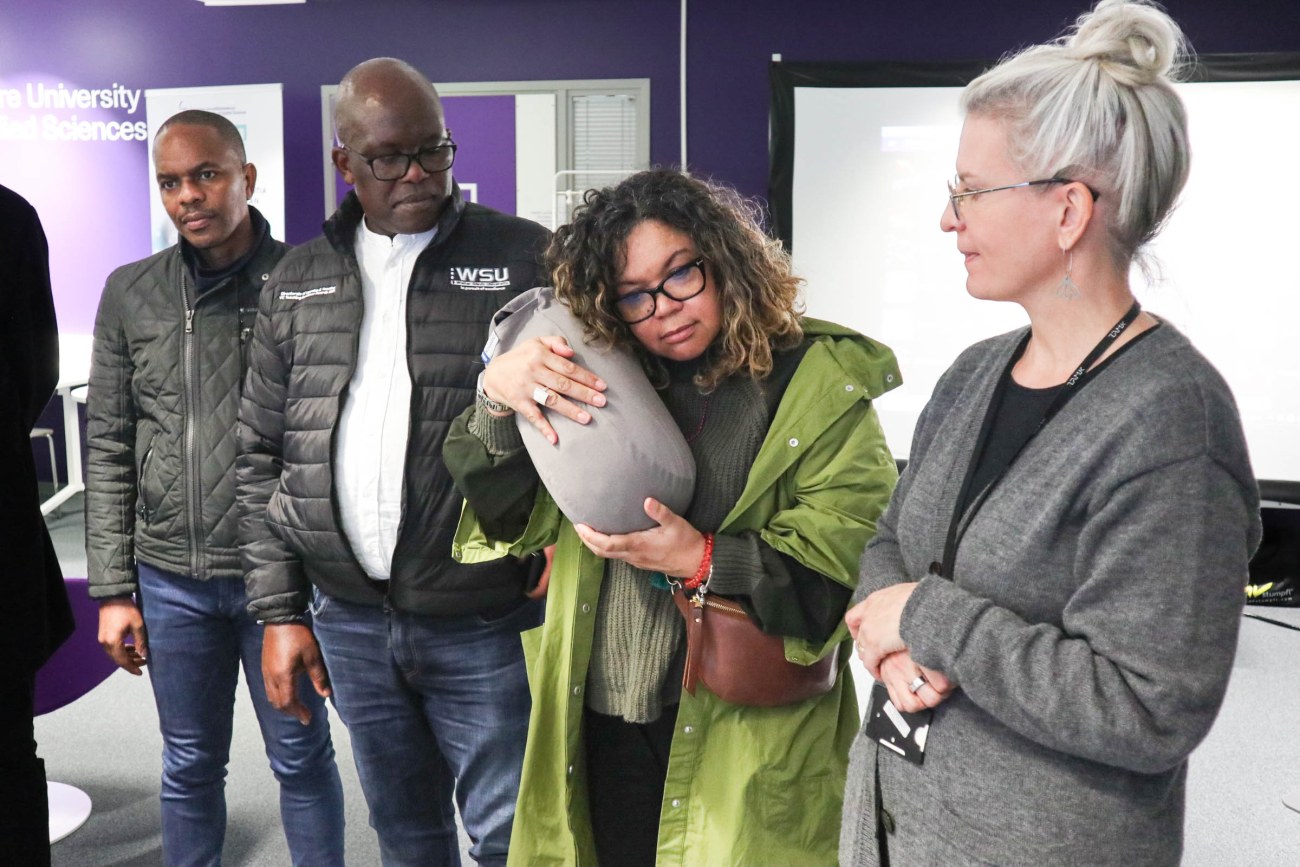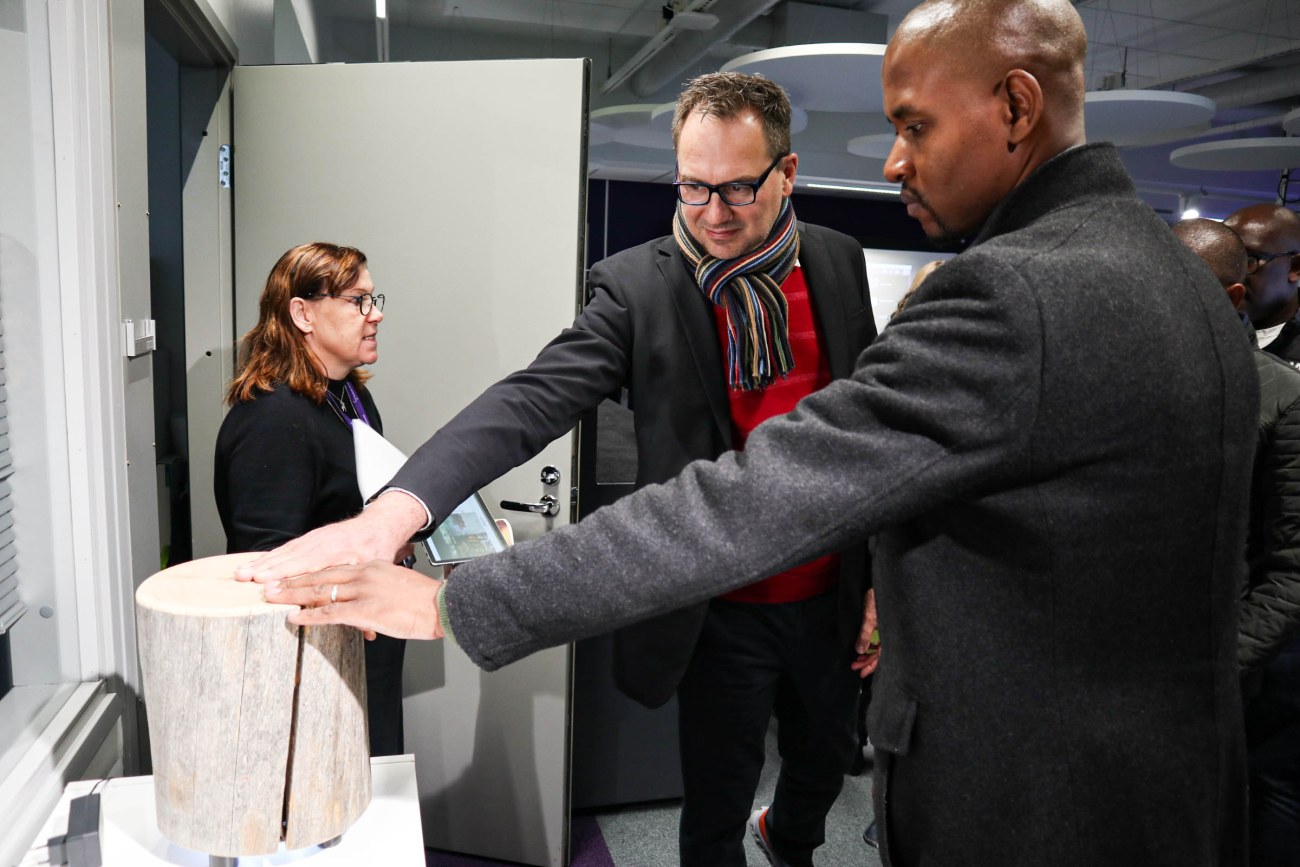South African delegations' visit to TAMK: A lot to learn both ways

HERESA project (Higher Education Reform Experts South Africa) aims to provide help to South African technology-focused universities to revise and reinvigorate teaching and learning strategies.The TAMK members participating in HERESA are Elina Botha, Jiri Viippola, Juha Lahtinen and Ella Kallio.
THENSA is a network whose purpose is to enable its partner institutions to respond to the challenges and targets set in the NDP, the United Nations Sustainable Development goals and the Africa 2063 Agenda, through Technological Education, Research and Innovation.
Interest towards Finnish education
The visit of the HERESA delegation was organised due to the interest towards Finnish Bachelor’s level education in universities of applied sciences. The biggest areas of interest were the student-centered pedagogics, skills-based learning, the curricula, and entrepreneurship education concept Proakatemia.
“We might not have all this equipment, but it’s a nice experience to transform our education with what we have seen and fits in our context,” comments Dr. Zwelijongile G. Baleni from Walter Sisulu University.
The three-day visit was planned by Elina Botha, Senior Lecturer of Social Services and Health Care at TAMK, and Jiri Vilppola, Senior Lecturer of Pedagogic Innovation and Culture at TAMK School of Professional Teacher Education (TAOK).
“It is wonderful working together to find creative solutions to issues that higher education institutions face in both countries. I think that in South Africa they are now facing big challenges that we will see in our future, too. Also, there is so much that we can adopt from the South African cultures regarding collaboration, sharing, and fully utilising our resources for maximum impact,” comments Elina Botha.

The visit included a tour around TAMK main campus and an introduction to the Finnish education system. The delegation met TAMK Continental Team leaders and Global Education export managers and the Rectorate of TAMK. Different facilities, such as Engineering Laboratories and TAMK Virtual Lab for Social and Health Care showcased the different learning environments.
“We have learnt a lot from our collaboration and from this visit at TAMK. The next step is the contextualisation of what is possible to implement in our learning environments,” says Prof. Takalani Mashau from University of Venda.
In order to get a comprehensive idea of the Finnish education, the delegation made several study visits to units and schools, such as TAMK School of Professional Teacher Education (TAOK), TAMK Proakatemia, Tredu Vocational School in Hervanta, Tampere University and the School of Industrial Engineering.
“I like the idea that education in TAMK is an open system. There is a lot of trust within the education system. Certainly, the virtual system is something that our universities of technology can learn from. There is a lot of innovation that we can implement at home,” concludes Dr. Xena Cupido from Cape Peninsula University of Technology.

The HERESA project ends in 2023. As a conclusion, TAMK delegation will visit South Africa for the project’s wrap-up. At the same time it will be an opportunity for on-the-spot benchmarking and beginning new projects.
“The collaboration will continue for the next 100 years and grow even more,” exclaims Elina Botha.
Text: Dimitra Panopoulou-Huovila & Riikka Mölkänen
Photos: Dimitra Panopoulou-Huovila





